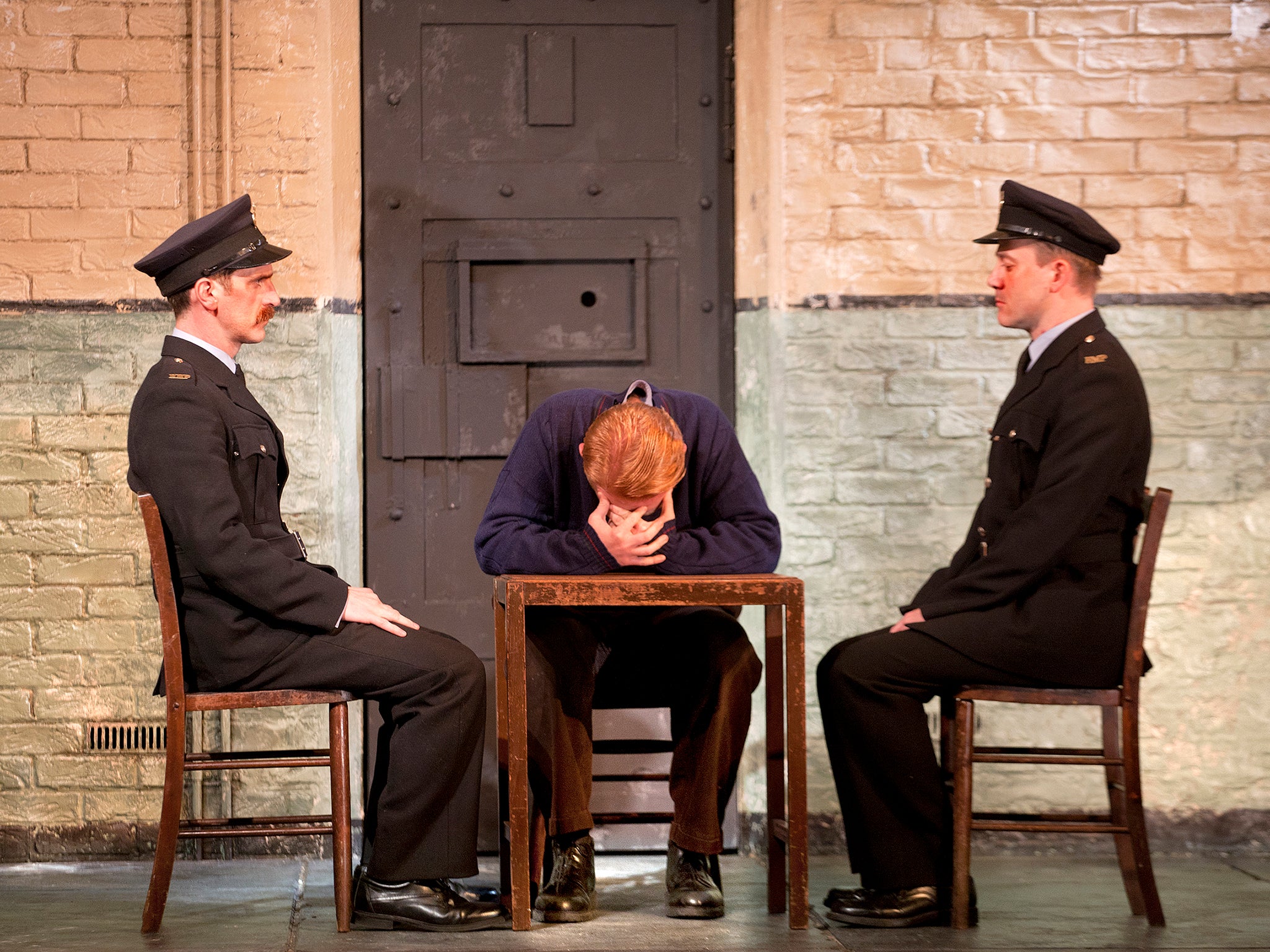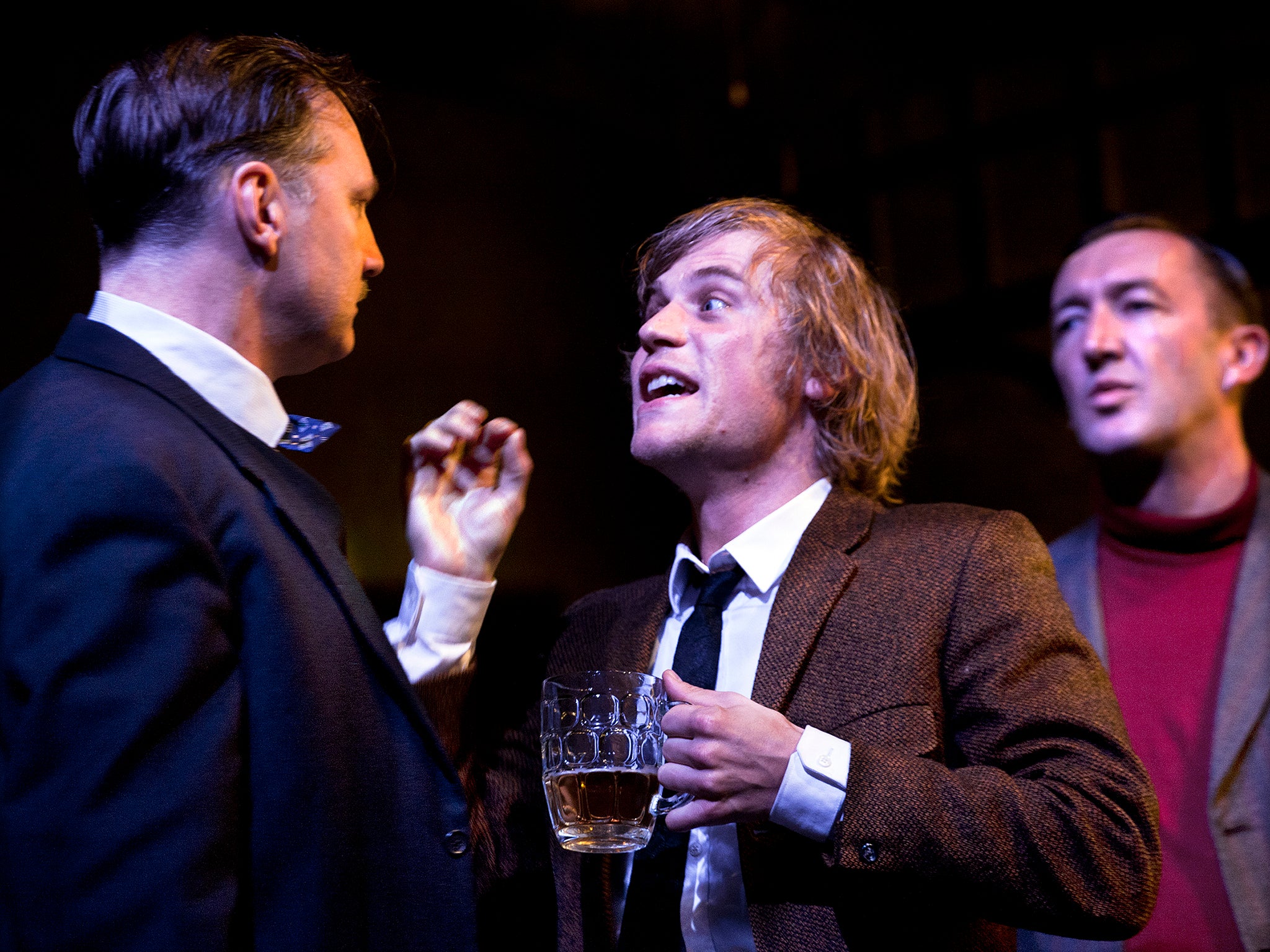Hangmen, Royal Court, theatre review: Play about the last public executioners in Britain is a flawless treat
The immaculate ingenuity and off-beam symmetry of the plotting is a thing of wonder

Your support helps us to tell the story
From reproductive rights to climate change to Big Tech, The Independent is on the ground when the story is developing. Whether it's investigating the financials of Elon Musk's pro-Trump PAC or producing our latest documentary, 'The A Word', which shines a light on the American women fighting for reproductive rights, we know how important it is to parse out the facts from the messaging.
At such a critical moment in US history, we need reporters on the ground. Your donation allows us to keep sending journalists to speak to both sides of the story.
The Independent is trusted by Americans across the entire political spectrum. And unlike many other quality news outlets, we choose not to lock Americans out of our reporting and analysis with paywalls. We believe quality journalism should be available to everyone, paid for by those who can afford it.
Your support makes all the difference.True, you might want to think twice before declaring that this play about the last public hangmen in Britain is “drop-dead hilarious” or “perfectly executed”. But that's a pretty exact description both of the blackly comic brilliance of Martin McDonagh's writing in the piece (which marks his long-awaited return to the Royal Court) and of the sterling virtues of Matthew Dunster's consummately well-cast and performed production.
The American musical Fields of Ambrosia (“where everyone knows ya”) has gone down in the annals of infamy for the unintentionally killing mirth that it aroused with its portrait of an intinerant executioner and his portable electric chair. Set in 1963 and then in 1965 on the very day that the death penalty was scrapped in this country, McDonagh's play, by contrast, adds up to a stinging indictment of capital punishment but never can the case against it have been mounted with such blissfully disreputable humour in a work that refuses, to put it mildly, to wear its heart on its sleeve.
We start in a brick prison cell where the hanging of a young man veers into grotesque farce. The hangmen are all three-piece-suits and dicky-bows and standing-on-their dignity, even correcting the youth's grammar (“hanged” not “hung”) as he frantically resists He's told that it will be easier for him if he relaxes: “It won't be easier for me. I'll be dead”. Belying the front of pernickety professionalism, the episode is fraught with bad-joke bungling. The whole set then lifts (the ace design is by Anna Fleischle) to reveal the cosy, nicotine-coloured bar of the pub in Oldham where David Morrisey's sublimely tinpot-but-touchy Harry, the last hangman, is now mine host, surrounded by a collection of goon-like sychophants who laugh like drains at his bumptious remarks and really get off on their proximity to the dealer in death.

The Northern-ness is in deliciously dour inverted commas. “You wanna watch yourself, lad. We're not all friendly up north”; the figure thus addressed is Johnny Flynn's disquietingly charismatic Mooney, who, it turns out, has been hired to be a “vaguely menacing” but is more Pete'n'Dud than Pinter. Why is he chatting up Harry's shy, moping adolescent daughter Shirley (gorgeously played by Bronwyn James). A quoter of Nietzsche, Mooney also gets to deliver one of the more bottomlessly banal sentences in world drama: “I'm slow with nuts”.
The immaculate ingenuity and off-beam symmetry of the plotting is a thing of wonder. I won't spoil it for you, except to say that, on this day of abolition, we have not seen the last of nooses or possible miscarriages of justice. Reece Shearsmith is spot-on conveying the hapless, pervy resentment as the assistant still smarting that the priggish Harry sacked him for tittering at the enormous penis on the corpse of one of their victims. And John Hodgkinson is wonderfully imposing at the real-life Pierrepoint, Harry's rival who arrives at a massively inconvenient moment and proceeds to anatomise his cowardice and his feeble dependence on his dubious status. A flawless treat.
Join our commenting forum
Join thought-provoking conversations, follow other Independent readers and see their replies
Comments